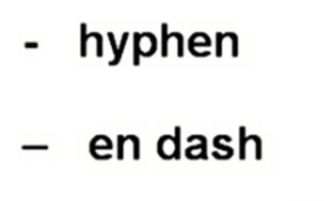How to Pronounce 'SELECTED' in English?
How to Pronounce "SELECTED" in English: A Multifaceted Guide

The word "SELECTED" might seem straightforward at first glance, but there's more to its pronunciation than just saying the letters one by one. To truly master how to say "SELECTED" in English, it's essential to delve into various aspects of pronunciation, including phonetics, stress patterns, intonation, regional accents, and even cultural connotations. By exploring these dimensions, you'll gain a deeper understanding of how native speakers perceive and articulate this word.

Phonetic Breakdown

Let's start with the basics: the phonetic breakdown of "SELECTED." In the International Phonetic Alphabet (IPA), "SELECTED" is transcribed as /səˈlɛktɪd/. Here's a breakdown of each sound:
1. /sə/ - This is a reduced vowel sound, often heard at the beginning of unstressed syllables or words. It's similar to the "uh" sound in "uh-oh," but softer and quicker.
2. /ˈlɛk/ - The stress falls on the second syllable, "lek." The /l/ is a clear liquid sound, followed by /ɛ/, a mid front vowel similar to the "e" in "bed," and /k/, a hard stop consonant.
3. /tɪd/ - The final syllable, "tid," starts with /t/, a stop consonant, followed by /ɪ/, a high front vowel like the "i" in "kit," and ends with /d/, an alveolar plosive.
Paying attention to these individual sounds will help you articulate "SELECTED" more clearly. Practice saying each phoneme separately before blending them together.
Stress Patterns
Stress in English words is crucial for proper pronunciation and can change the meaning of a sentence. In "SELECTED," the stress falls on the second syllable, "lek." This pattern is common in English adjectives and past participles ending in "-ed."
If you accidentally stress the wrong syllable, like saying "SE-lected" instead of "se-LECTED," native speakers might have trouble understanding you. They might think you're saying a different word or phrase altogether. Therefore, practicing the stress pattern is vital for clear communication.
Intonation
Intonation refers to the rise and fall of pitch in speech, which can convey different emotions and attitudes. While the basic pronunciation of "SELECTED" remains constant, your intonation can change depending on the context.
For instance, if you're reading a list of selected items, your intonation might be flat and neutral. But if you're excited about a selected opportunity, your pitch might rise at the end of the word. Conversely, if you're disappointed by a selection, your pitch might fall.
Practicing intonation involves listening to native speakers and mimicking their pitch patterns. Try recording yourself and comparing your intonation to that of a native speaker. This exercise will help you sound more natural and expressive.
Regional Accents
English is spoken with various accents around the world, and each has its unique pronunciation quirks. While the basic phonetic breakdown of "SELECTED" applies globally, regional accents can add nuances to the pronunciation.
For example, in some British accents, like Received Pronunciation (RP), the vowel in the second syllable might be pronounced as /eː/, a longer and more open version of the /ɛ/ sound. In American accents, the vowel tends to be shorter and more closed.
Additionally, regional accents can affect consonant pronunciation. In some dialects, the /t/ in "SELECTED" might be aspirated (a brief puff of air following the consonant), while in others, it might be unaspirated.
To understand these nuances, listen to speakers from different regions and try to imitate their accents. This can be a fun way to explore the diversity of English pronunciation.
Cultural Connotations
Beyond the pure phonetics of "SELECTED," the word carries cultural connotations that can influence pronunciation. In many cultures, being "selected" implies a sense of excellence, privilege, or exclusivity. This perception can affect how people say the word.
For instance, in some cultures, pride or confidence might lead to a louder, more emphatic pronunciation of "SELECTED." In others, humility or reservedness might result in a softer, more understated pronunciation.
These cultural differences can also influence intonation and stress patterns. A confident speaker might stress the word more strongly to emphasize their sense of accomplishment or worthiness. Conversely, a more reserved speaker might downplay the stress to avoid appearing boastful.
Practical Tips for Pronunciation
Now that you've explored the multidimensional aspects of "SELECTED's" pronunciation, here are some practical tips to help you perfect your pronunciation:
1. Listen and Imitate: Find native speakers who pronounce "SELECTED" clearly and listen closely to their pronunciation. Try to imitate their stress patterns, intonation, and even any regional nuances they might have.
2. Use a Pronunciation Guide: The IPA transcription provided earlier is a valuable tool, but it can be challenging to read at first. Consider using a pronunciation guide or app that provides audio examples of the sounds and words.
3. Practice in Context: Pronouncing "SELECTED" in isolation is one thing, but using it in sentences is another. Practice using the word in different sentences and contexts to see how it fits into natural speech.
4. Record Yourself: Recording your pronunciation and comparing it to that of a native speaker can be a revealing exercise. Listen for differences in stress, intonation, and vowel quality, and try to adjust your pronunciation accordingly.
5. Seek Feedback: If you have access to a language tutor or mentor, ask them to listen to your pronunciation and provide feedback. They can offer insights into areas where you need improvement and suggest strategies for improvement.
6. Be Patient: Pronunciation is a skill that takes time and practice to perfect. Don't be discouraged if you don't sound like a native speaker right away. With consistent practice, you'll gradually improve.
In conclusion, pronouncing "SELECTED" in English involves more than just saying the letters. By exploring the phonetic breakdown, stress patterns, intonation, regional accents, and cultural connotations, you'll gain a deeper understanding of how to articulate this word effectively. With practice and patience, you'll soon be able to say "SELECTED" with confidence and clarity.

